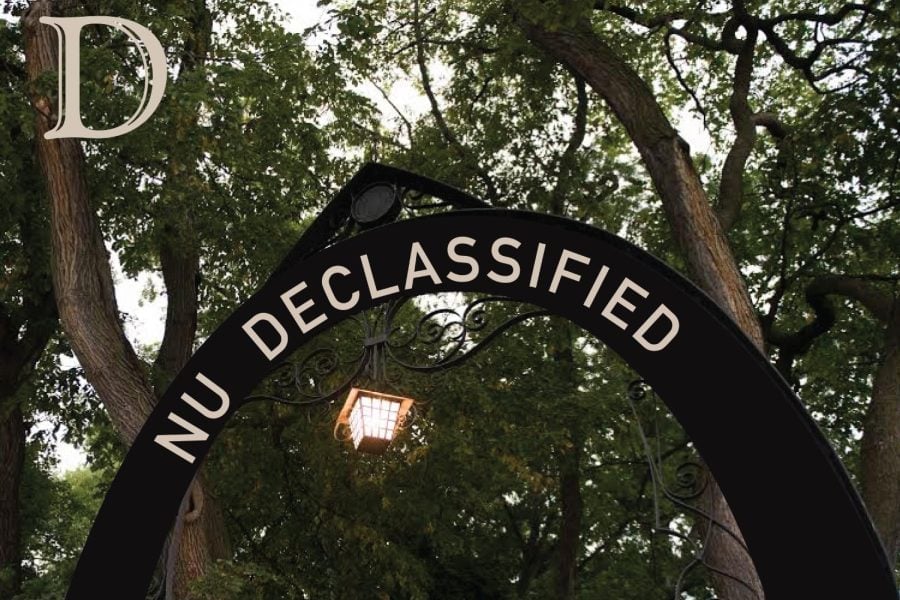A group of attorneys at the Northwestern School of Law are suing to challenge how Illinois revokes parole for thousands of ex-convicts every year.
The parole revocation system in the state of Illinois is broken and needs a major overhaul, according to a group of attorneys at the School of Law and the Uptown People’s Law Center. Three class-action lawsuits have been filed in an attempt to generate reform of a system the attorneys say has denied parolees due process and has failed to live up to court orders to remedy its flaws.
The three cases focus on the state’s parole violation hearings, which consist of a two-stage process. Preliminary hearings determine whether there is probable cause that the violation was committed and usually occur within a few days of the parolee’s arrest. At that point, if someone is innocent, he or she should be heard and released within a few days.
“These people could lose their jobs, their families, if they are kept in for too long,” said Alan Mills, one of the attorneys working on the cases.
The lawsuits allege that because defendants often do not have access to an attorney, they do not have the ability to defend themselves in these hearings.
“For some people there is strong evidence that they didn’t commit the violation, but they can’t present the evidence because they don’t have a lawyer,” said law Prof. Alexa Van Brunt, another attorney involved in the lawsuits.
The same problems arise during the second stage of hearings, in which members of the state parole board hear evidence to determine if the violation was committed, and if so, what to do about it. Mills, who also serves as legal director of the UPLC, said parolees who do not have access to a private attorney are often left without any defense.
“There is such a high volume of cases that there’s no evidence, so the only thing the board is presented with is the original allegation. The decisions are based on minimal evidence,” Mills said.
Mills blames many of the problems of the parole system on state budget cuts and overcrowding of prisons in the last few years.
“The Illinois prison system over the last two to three years has increased the number of people by 10 percent and has decreased budget by 10 percent,” he said. “You can’t keep stuffing people into the prison system and the parole system and then expecting people to do a good job with this.”
The 15-member Prisoner Review Board heard about 9,200 parole revocation cases last year, according to its annual report. Ken Tupy, the board’s chief legal counsel, said it was able to manage this caseload, although he also said he would like to see more information made available in the decision-making process.
Tupy declined to comment on the pending litigation.
“Our role isn’t just to incarcerate people — it’s to try to rehabilitate them,” Tupy said. “I would like to see more information on drug addiction problems and more psychological information brought to board members.”
If found guilty of violating their parole conditions by the Prisoner Review Board, parolees are sent back to the Department of Corrections to serve the remainder of their time. But Van Brunt said that putting those who have violated their parole back in prison is not always the best solution, especially when it is a technical violation.
“The best way to deal with it is not to put them back in prison, but to adjust the terms of paroles and figure out a solution so the parole will work,” she said. “You’re taking people off the streets who are valuable contributors to society, who are working and providing support for their families.”
However, technical parole violations make up only a small percentage of the revocation cases the board hears, Tupy said. He said that most are criminal violations and that unless it is a minor offense, the board will probably send them back to jail. He said that overcrowding does not influence the board’s decision.
“The inmate on parole has the keys to whether or not he goes back,” Tupy said. “He should know there’s going to be a penalty if he screws up, and this encourages people to stay on parole. If we disregarded this, I think a lot of people would start violating their conditions.”
Tupy agreed lack of funding is an issue, citing it as the reason behind both minimal evidence at hearings and the scarcity of rehabilitation resources.
“There are not enough service providers to help all of these people, and unfortunately inside corrections, we need to have stronger programs to help deal with inmate issues,” he said. “It’s all a question of funding.”
Email: [email protected]












